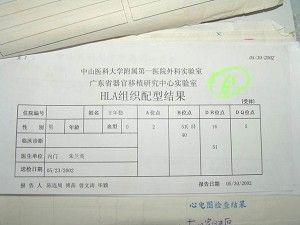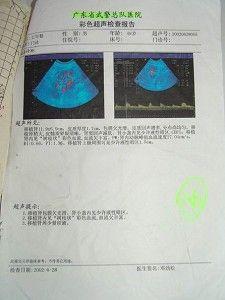The world was shocked by the exposure of live organ harvesting being done on Falun Gong practitioners at the Sujiatun Concentration Camp in Shenyang City. This may be one of the cruelest tragedies in the history of humanity. Western society has very strict medical requirements and standards regarding organ transplants. In addition, there is a universal medical standard. Many people cannot imagine or believe that it is really happening in China.
International society has a constant shortage of organs for transplant, especially kidneys since they only keep 24 to 48 hours out of the body. Normally patients are listed on computer waiting lists for kidneys to become available that are a match for their body tissue. If the tissue match is not good, the body may reject the new kidney. The wait is usually a number of years. Some people question that even if so many live Falun Gong practitioners’ organs are being taken at Sujiatun, the hospitals in Shenyang that are qualified to do kidney transplant operations are limited. The Chinese and Western Medicine Thrombus Treatment Center in Liaoning Province is only a second class hospital. Are they able to do these operations?
The question is raised whether private kidney transplants and other organ transplants are being done in hospitals in Mainland China that are not qualified to do them. International media has reported that a large number of people from overseas have been traveling to Mainland China specifically for organ transplant operations. The greatest benefit offered is the short waiting time of patients for an organ match, with the shortest waiting time of only two weeks. Currently, there are advertisements in Japan and Southeast Asia about quick kidney transplants in Mainland China.
Large numbers of mainland officials, businessmen, famous actors/actresses, other famous and wealthy people are receiving kidney transplants quickly in Mainland China. Expert medical analysts state that it is very likely that China is warehousing kidney organs from live bodies. It is not possible for so many to be available otherwise.
Advertisements appear on public bulletin boards and telephone poles everywhere in different provinces and cities in Mainland China. The ads read: “Do you want to a kidney transplant?”, “We can provide kidney sources immediately.” Mainland people say that China is now doing kidney transplants as commonly as curing social diseases. Even normal township and village hospitals can do it. Doctors and unqualified people are doing large numbers of organ transplants in private.
The Chinese Communist Party (CCP)’s policy of no criminal charge for beating Falun Gong practitioners to death and the fact that Falun Gong practitioners can be illegally arrested has provided sources of live-body organ transplants.
The program “Society Outlook,” produced by Guangdong Star TV, was about Hong Kong resident Wang Nianwen’s trip to Guangzhou for a kidney transplant. This should in part raise red flags for our readers and answer their doubts regarding Sujiatuns’ live harvesting of Falun Gong practitioners’ organs.
We will continue to report news on this topic. We hope that people from different fields can provide evidence to expose these ruthless activities to the international community.
In Hong Kong, those that suffer late stage kidney failure must wait for as long as seven to eight years on average for a kidney transplant. However, 52-year-old Hong Kong resident Wang Nianwen went to Guangzhou seeking a kidney and had one within a month. He went to Guangdong from Hong Kong full of hope, thinking that the long suffering days would go away. However, just 16 days after his kidney transplant, he left this world in tremendous pain from the surgical wound.
Wang had nephropathy for ten years. His illness became worse during the fourth. The state of deterioration by the ninth year required him to quit his job and stay at home. On May 23, 2003, he went to the First Affiliated Hospital of the Sun Yat-sen University in Guangdong Province (abbreviated as “Zhongshan Hospital”) for diagnosis. Zhu Lanying, director of the Kidney Internal Medicine department, thoroughly examined and tested him. A search for a “kidney match” was done and a transplant operation was arranged by this hospital.

